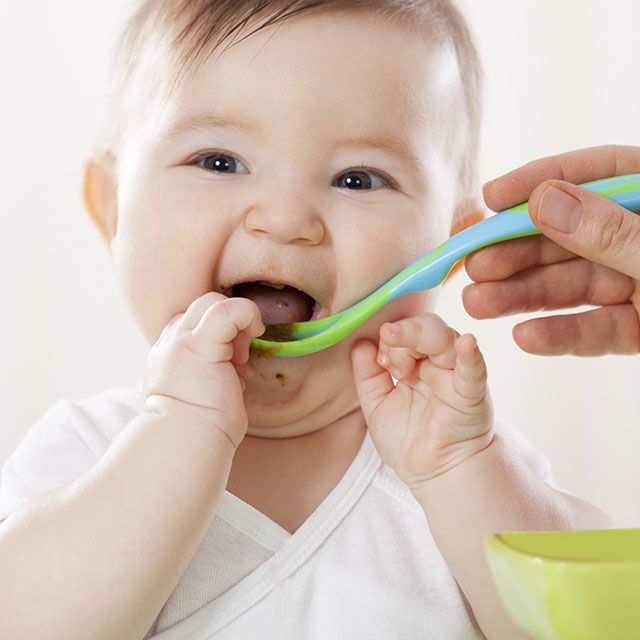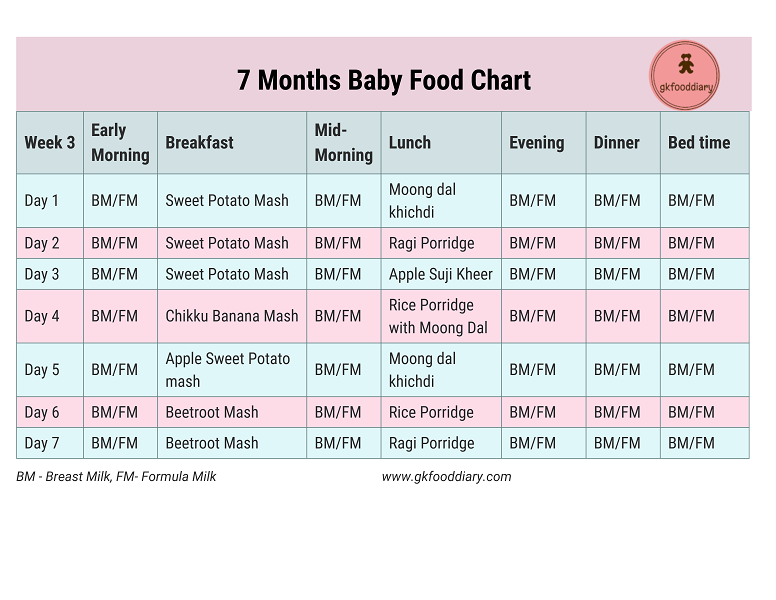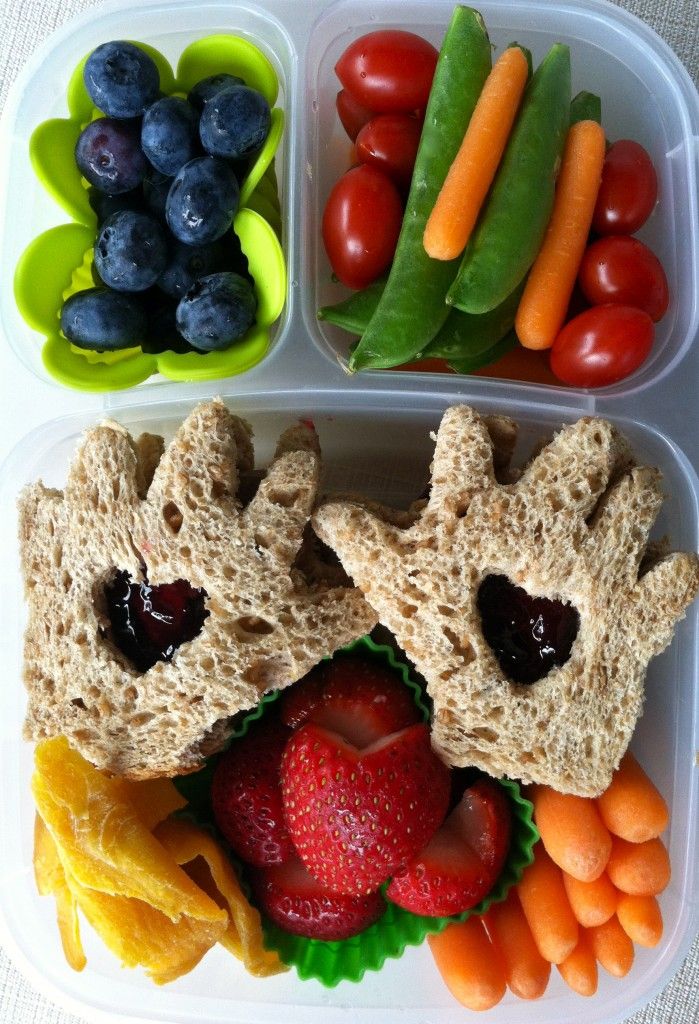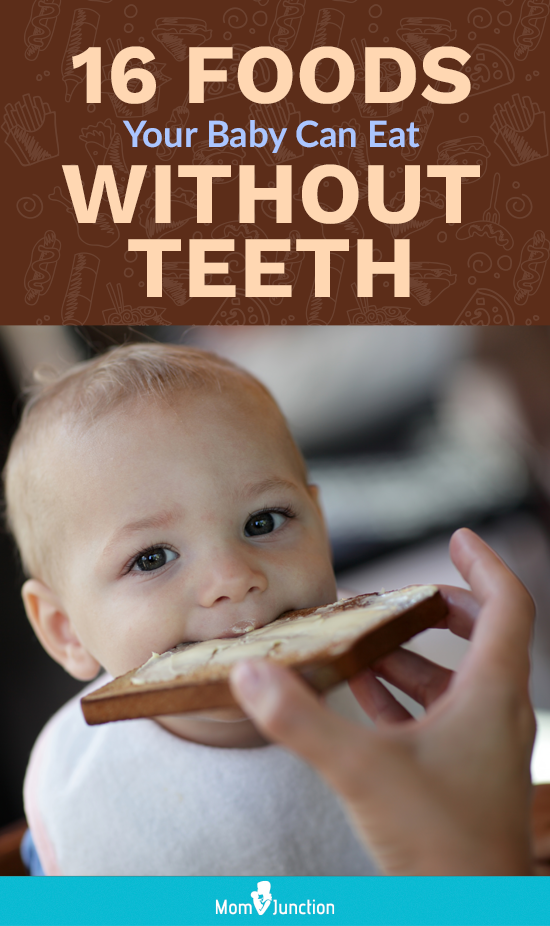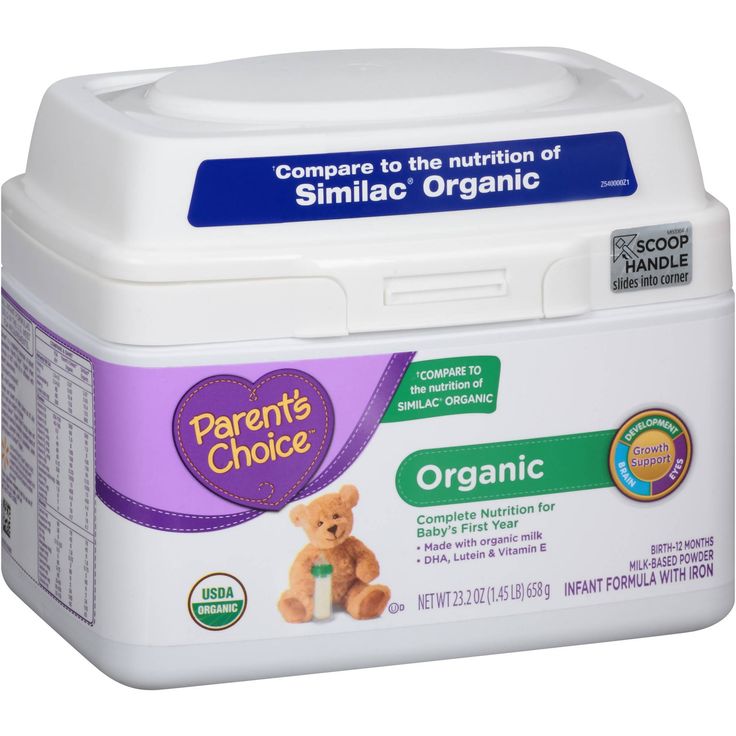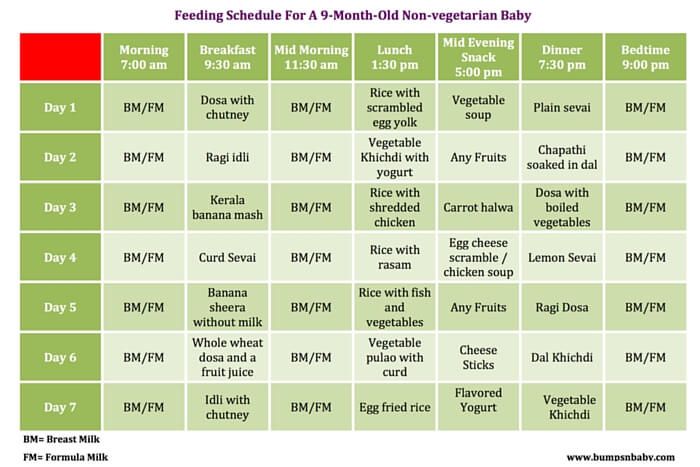Feeding hungry babies
Formula Feeding FAQs: How Much and How Often (for Parents)
Whether you plan to formula feed your baby from the start, want to supplement your breast milk with formula, or are switching from breast milk to formula, you probably have questions.
Here are answers to some common questions about formula feeding.
How Often Should I Feed My Baby?
Newborns and young babies should be fed whenever they seem hungry. This is called on-demand feeding.
After the first few days of life, most healthy formula-fed newborns feed about every 2–3 hours. As they get bigger and their tummies can hold more milk, they usually eat about every 3–4 hours. As babies get older, they’ll settle into a more predictable feeding routine and go longer stretches at night without needing a bottle.
Talk to your doctor if you have concerns about feeding your baby, especially if your baby is very small, is not gaining weight, or was born early (prematurely).
How Can I Tell When My Baby Is Hungry?
Signs that babies are hungry include:
- moving their heads from side to side
- opening their mouths
- sticking out their tongues
- placing their hands, fingers, and fists to their mouths
- puckering their lips as if to suck
- nuzzling again their mothers' breasts
- showing the rooting reflex (when a baby moves its mouth in the direction of something that's stroking or touching its cheek)
Babies should be fed before they get upset and cry. Crying is a late sign of hunger. But every time your baby cries is not because of hunger. Sometimes babies just need to be cuddled or changed. Or they could be sick, tired, too hot or too cold, in pain, or have colic.
How Much Should My Baby Drink?
In the first few weeks, give 2- to 3-ounce (60- to 90-milliliter) bottles to your newborn. Give more or less depending on your baby’s hunger cues.
Here's a general look at how much your baby may be eating at different ages:
- On average, a newborn drinks about 1.5–3 ounces (45–90 milliliters) every 2–3 hours. This amount increases as your baby grows and can take more at each feeding.
- At about 2 months, your baby may drink about 4–5 ounces (120–150 milliliters) every 3–4 hours.
- At 4 months, your baby may drink about 4–6 ounces (120-180 milliliters) at each feeding, depending on how often they eat.
- By 6 months, your baby may drink 6–8 ounces (180–230 milliliters) about 4–5 times a day.
Watch for signs that your baby is hungry or full.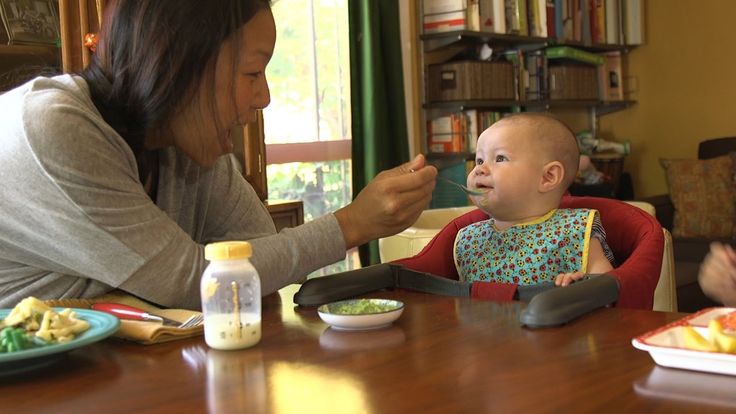 Respond to these cues and let your baby stop when full. A baby who is full may suck with less enthusiasm, stop, or turn away from the bottle.
Respond to these cues and let your baby stop when full. A baby who is full may suck with less enthusiasm, stop, or turn away from the bottle.
Why Does My Baby Seem Hungrier Than Usual?
As babies grow, they begin to eat more at each feeding and can go longer between feedings. Still, there may be times when your little one seems hungrier than usual.
Your baby may be going through a period of rapid growth (called a growth spurt). These can happen at any time, but in the early months are common at around:
- 7–14 days old
- between 3–6 weeks
- 4 months
- 6 months
During these times and whenever your baby seems especially hungry, follow their hunger cues and continue to feed on demand, increasing the amount of formula you give as needed.
Is My Baby Eating Enough?
At times, you may wonder whether your baby is getting enough nutrients for healthy growth and development. Babies who get enough to eat seem satisfied after eating and are regularly peeing and pooping.
At your baby’s checkups, the doctor will review your baby’s growth chart, track your little one’s development, and answer any questions. Talk to your doctor if you have any concerns about your baby’s feeding and nutrition.
Reviewed by: Mary L. Gavin, MD
Date reviewed: November 2021
Hungry Baby - Why Is My Baby Always Hungry? – Baby Care Advice
We all appreciate that young babies have tiny tummies and are growing at a rate that is faster than any other time in their lives. Hence, they need to eat often. However, when parents express concern about their ‘hungry baby’ this refers to a baby that appears to be excessively hungry, who demands feeds more often than expected, or is eating well above the recommended volume of milk for a baby of his age and size.
The ‘hungry baby’ phenomenon where babies act like they have an insatiable appetite is especially common in babies younger than 3 months of age.
The first step toward finding a solution that will satisfy your baby is to distinguish between the reasons for genuine hunger and the appearance of hunger. In this article, I explain what causes healthy babies to act like they’re excessively hungry and what you can do to promote your baby’s contentment.
In this article, I explain what causes healthy babies to act like they’re excessively hungry and what you can do to promote your baby’s contentment.
There are several reasons why babies might be genuinely hungry and need to feed sooner or require more milk than you expect. These include:
1. Normal behavior
2. Cluster feeding
3. Growth spurt
4. Catch-up growth
5. Poor latch
6. Low breastmilk supply
7. Diluted baby formula
8. Extreme vomiting or diarrhea
1. Normal behavior
If you’re a first-time parent, it may be that you are unfamiliar with the huge range of ‘normal’ infant feeding patterns and behaviors. The first step is to clarify your expectations about your baby’s feeding with his healthcare professional.
If it’s confirmed that he’s feeding more often or consuming greater volumes than expected for a baby of his age and weight, consider if any of the multiple reasons for the appearance of hunger, described later in this article, apply.
‘Cluster feeding’, which is a pattern of frequent nursing in the afternoons and evenings, is an example of normal feeding behavior for breastfed babies. A breastfed baby could demand feeds every one to two hourly when cluster feeding.
3. Growth spurtHow quickly a baby is growing will influence his appetite. Babies' growth occurs in a step-wise pattern. Growth spurts (a period of accelerated growth) are separated by growth plateaus (a period of stagnant growth). During a growth spurt, your baby may appear to be hungrier than usual. If breastfeeding, he may demand nursing more often. If bottle-feeding, he might drain the bottle and want a little more.
On the flip side, during a growth plateau, your baby’s appetite will reduce and his milk volumes decrease. He might also go longer periods of time between nursing or feeding sessions.
4. Catch-up growthCatch-up growth is a period of accelerated, compensatory growth (faster than typical for age) which occurs after the removal or resolution of a problem that previously caused under-nutrition or growth delay.
If a breastfed baby is unable to feed to satisfaction as a result of a poor latch, he will demand frequent nursing.
6. Low milk supplyIf a breastfeeding mother has a low milk supply, her baby may demand to feed more often. (See our article on How to tell when baby is getting enough breastmilk.)
7. Diluted formulaIf a baby’s infant formula is accidentally diluted, perhaps due to using the wrong scoop or not accurately following the manufacturer’s instructions, this would decrease the calories he would receive, and he would want to feed more often.
8. Extreme vomiting or diarrheaIf your baby vomits often and hence loses much of the milk he receives while feeding, he may demand to feed more often. However, it’s important to take care to avoid overfeeding because it’s one of the most common reasons for healthy babies to vomit.
Similarly, if he has frequent watery bowel motions as a result of a digestive disorder, for example milk protein allergy or intolerance, he may be losing nutrients and calories due to poor digestion, and hence demand more frequent feeding.
Rule out the possibility of a feeding management problem such as lactose overload before assuming the cause is due to milk protein allergy or intolerance, as this is one of the most common reasons for healthy, thriving babies to have frequent, watery stools, extreme gas, and abdominal discomfort.
Needless to say, if your baby appears unwell or is not gaining sufficient weight, consult with his healthcare professional.
Surprisingly, it's typically babies who have no problems putting on weight that are the most difficult to satisfy. If this is the case, it may be that one of the following reasons is mistaken as hunger.
Why babies APPEAR hungry
Infant behavioral cues are not easy to read, especially before 3 months of age. There are many reasons why parents might think their baby is hungry when he is not. These include:
1. Misinterpreting behavior cues
2. Frequent feeding patterns
3. Underlying sleeping problem
4.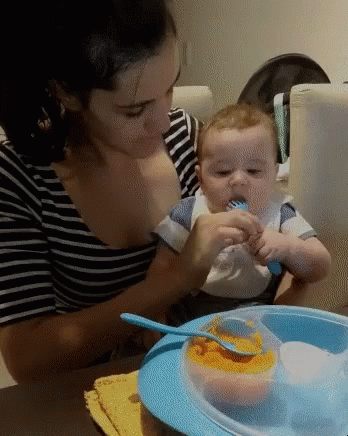 Abdominal discomfort linked to overfeeding
Abdominal discomfort linked to overfeeding
While it's possible for there to be only one cause, generally there is a combination of the reasons listed below.
1. Misinterpreting behavioral cuesHunger is one of the first things we suspect when a baby fusses, cries, or looks like he wants to suck. However, hunger is only one of many different reasons for babies to display these behaviors. Other reasons include:
Infant reflexesInfant reflexes such as rooting and hand-to-mouth are often assumed to be signs of hunger. Sucking and swallowing reflexes are often mistaken as confirmation that a baby is genuinely hungry. However, these reflexes can be triggered irrespective of whether a baby is hungry or not.
Sucking urgeYoung babies have a strong urge to suck. They often want to suck when tired, overstimulated, bored, uncomfortable, or for pleasure. Consequently, a baby's desire to suck is not proof that he is hungry.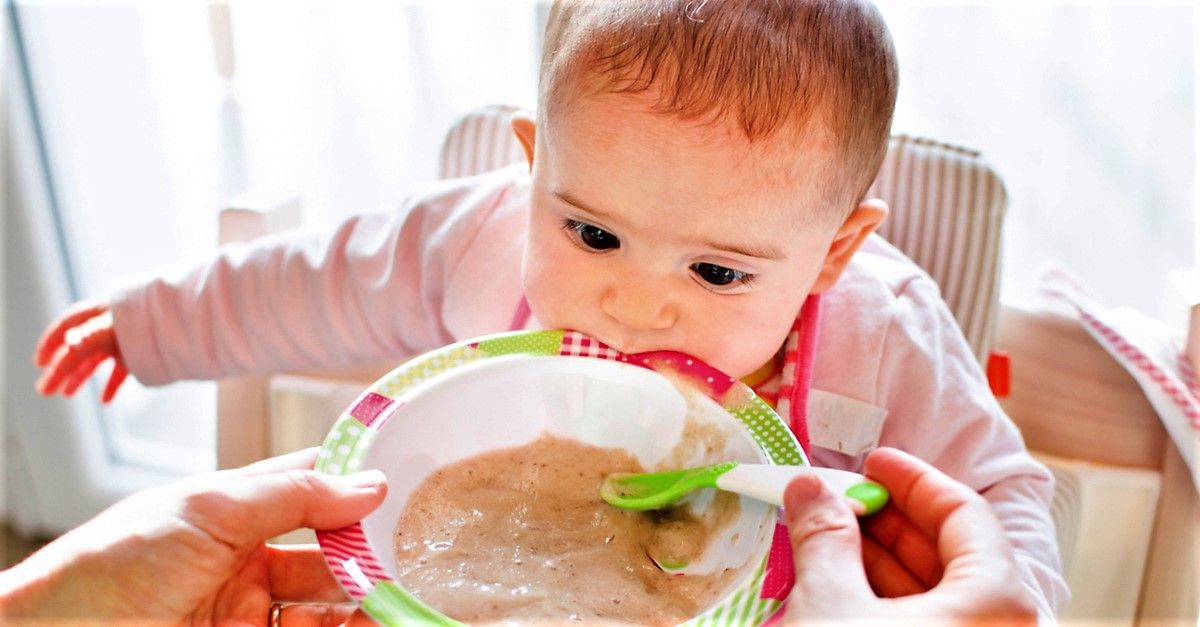
Tiredness cues Babies display signs of tiredness differently than we expect. Tired signs displayed by young babies include clenched fists, waving arm and leg movements, facial grimaces, fussing and grumbling then crying. Infant tiredness cues are often overlooked or misinterpreted as hunger, boredom, or pain.
ThirstA thirsty baby may give the impression of hunger. Once a baby starts to eat solid foods, it’s recommended that he be offered small volumes of water during the day in addition to his usual milk feeds.
2. Frequent feeding patternsBabies can develop a pattern of frequent feeding - often referred to as snack-feeding or grazing - where they take small volumes of breastmilk or infant formula at each feed. As a result, they demand feeds more often.
Snack-feeding is easily identifiable when a bottle-fed baby consumes small volumes. However, it’s not as readily recognizable when a baby is breastfed. Many breastfeeding mothers mistakenly blame low milk supply when their baby wants to nurse every hour or two.
Babies have an immature nervous system. It takes time for their brain to register that their stomach is full. Speed-feeding means a baby consumes the milk too quickly. Speed-feeding can result in newborn babies overfeeding before they recognize they have had enough. (See How long to feed for ideal feeding duration for age.)
4. Underlying sleeping problemAn unresolved sleeping problem is a major reason for infant feeding problems including the appearance of hunger, fussy feeding behavior, overfeeding, and underfeeding. A sleep association problem is the most common of all reasons for healthy babies to experience sleeping problems such as brief naps, frequent night awakenings and irritability due to sleep deprivation.
Without understanding the effects of sleep associations on their baby’s ability to fall asleep and remain asleep, many parents mistakenly assume the cause is hunger.
While there are many different props, activities, or conditions that individual babies could learn to associate with the act of falling asleep, feeding to sleep is especially common during the newborn period.
A feeding-sleep association, which means a baby has learned to link feeding with the act of falling asleep, is even more likely to cause a baby to give the appearance of hunger.
Once a feeding-sleep association is established (which can occur in babies as young as 2 weeks of age) the baby will act like he wants to feed whenever he wants to sleep because he's learned that "This is the way I go to sleep".
3. Abdominal discomfort linked to overfeedingOne or a combination of the reasons for the appearance of hunger described above, e.g., misinterpreting behavioral cues, a feeding-sleep association, and speed-feeding in combination with an active sucking reflex will increase the risk of overfeeding in newborns.
The symptoms of overfeeding can include spitting up, diarrhea, and abdominal discomfort.
What do babies like to do when uncomfortable? They like to suck! If a baby’s desire to suck for comfort is mistaken as hunger, he will be offered another feed, perpetuating the overfeeding cycle.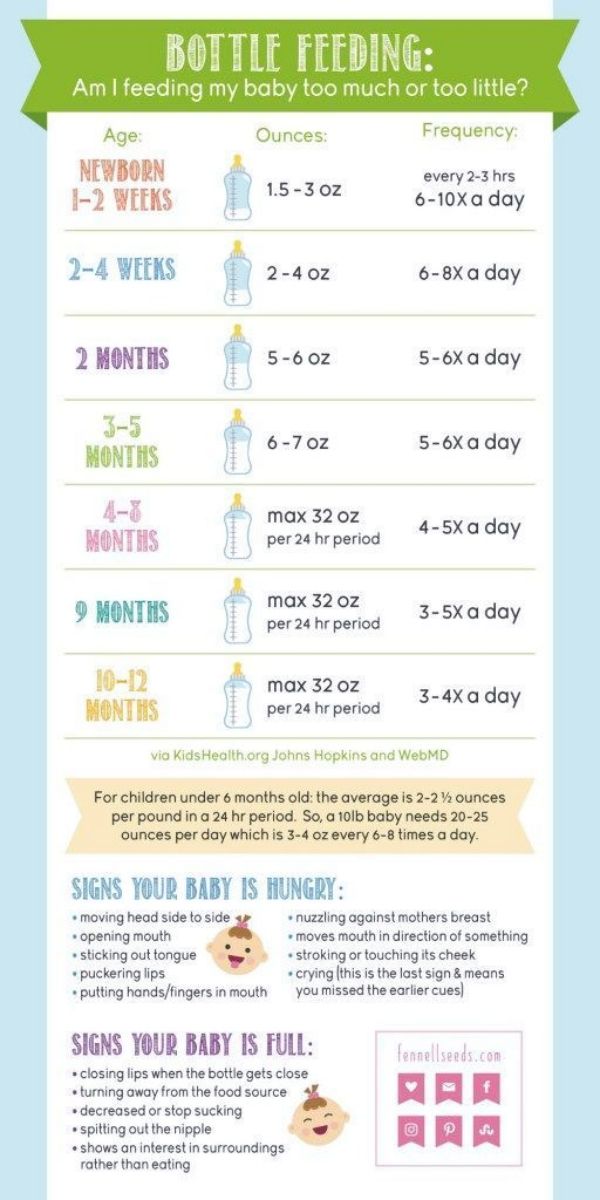
1. Resolve any feeding problem: This includes feeding position, latch, flow rate, supply problems, and bottle-feeding equipment.
2. Resolve any sleeping problem: Better sleep = better feeding, and the combination adds up to a content baby.
3. Don’t assume he’s hungry: If your baby appears hungry sooner than expected, consider the possibility of other causes like tiredness, discomfort, or desire to suck, before assuming the cause is hunger.
4. Satisfy your baby’s sucking needs: Provide a pacifier, or your finger to suck on. He will let you know if he’s not satisfied to suck without receiving milk.
Completing the above steps will go a long way towards helping you to gain more confidence in understanding your baby’s needs and accurately interpreting his behavioral cues.
How Baby Care Advice can helpWe appreciate that unless you have extensive experience in child development and the effect of different infant feeding and settling practices on a baby’s behavior, it can be difficult to know how and where to start to resolve a baby care problem.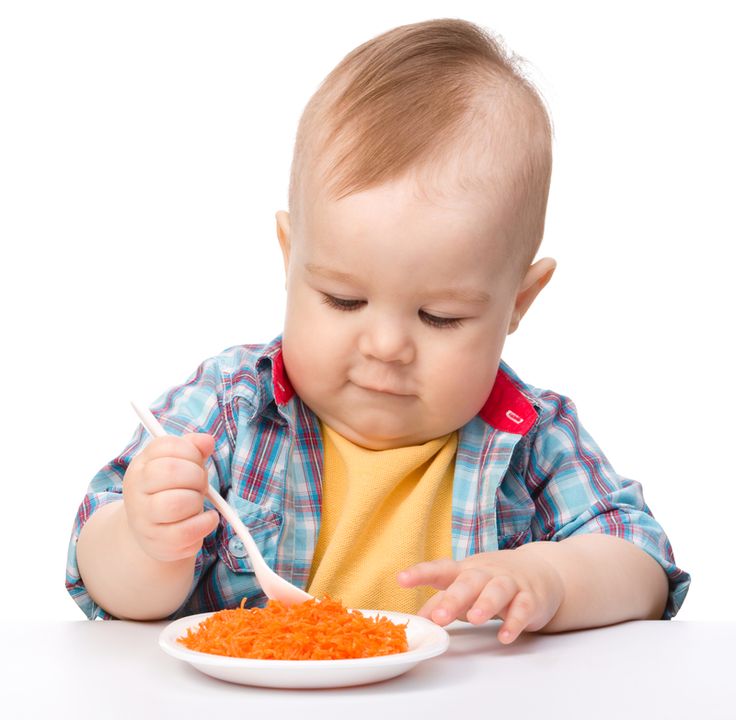 There are two ways in which we can help you gain a greater understand of your baby’s needs and your role as your baby’s parent and caregiver.
There are two ways in which we can help you gain a greater understand of your baby’s needs and your role as your baby’s parent and caregiver.
1. Rowena Bennett’s parenting books
2. Baby Care Advice consultation
3. Rowena's Online Bottle-Feeding Aversion Program
1. Rowena Bennett’s parenting books‘Your Sleepless Baby’
Good quality sleep not only promotes babies’ contentment it will reduce the risk of feeding problems. Information contained in my book, ‘Your Sleepless Baby’, is designed to help parents to understand their baby’s sleep needs, how their actions influence their baby's sleep, and ways in which parents can improve the quality of their baby's sleep.
2. Baby Care Advice ConsultationsBaby Care Advice consultants have extensive experience in providing parenting education and assisting parents to resolve feeding and sleeping problems that affect healthy babies. A Baby Care Advice consultation will assist you to explore all possible reasons for your healthy baby’s discontentment. The information, guidance, and advice you receive will help you to gain greater confidence in your ability to accurately interpret your baby’s behavioral cues and provide for his needs. (For more on our consultation service).
By Rowena Bennett, RN, RM, CHN, MHN, IBCLC.
Written Revised Aug 2021
Copyright www.babycareadvice.com 2021. All rights reserved. Permission from the author must be obtained to reproduce all or any part of this article.
How to donate $5,000 or more to feed hungry children Food for Life Global
Child hunger is a worldwide problem that needs to be addressed right now!
In the United States alone, 1 in 5 children do not have enough nutritious food. The malnourished children come from dysfunctional families in which the parents also face hunger. More than half of households around the world are forced to buy the cheapest food just to get enough. Hunger statistics are shocking, and the COVID-19 crisishas just made things worse for many families.
Hunger statistics are shocking, and the COVID-19 crisishas just made things worse for many families.
The good news is that you can do something!
Feeding someone in need can be started with a small donation of just $5, enabling Food for Life Global to feed 20 poor people. However, if you are in a better financial position, you can even donate $5,000 to our charity (online or by check), allowing our volunteers to feed 20,000 children in need.
It is incredibly honorable to make such a large donation of $5,000 or more, so let's find out how you can help financially. Food for Life Global and where your donation actually goes.
What happens when a child is in danger of starvation?
Before we get into the details, we need to detail what happens when you help feed a hungry child. First, malnourished children, especially during their developmental period, face serious health problems. They may develop anemia, diabetes, or even heart disease.
If you donate to needy children, you can prevent all this! When children go to school full, they can concentrate on their studies and then improve their living conditions. It's a chain reaction where one tiny thing can have a huge impact. You have a chance to make sure that the impact will be positive.
How far will the donation go (how many children can it help)
Donations to children are used to finance various projects to combat hunger and poverty. We use the money to support our partners by providing them with the resources they need to produce and distribute natural and plant-based food. We also use children's donations for education, training and mentoring programs so we can help children in need in the long run.
We keep administrative and fundraising costs to a minimum; for example, the president of the FFL only pays himself $25 a day! This allows us to direct as much money as possible to our cause. Our food programs are a top priority, and we carefully consider how much money we should allocate to these programs.
Our food programs are a top priority, and we carefully consider how much money we should allocate to these programs.
For example, a $350 donation can provide education and feed a child for a year. Through a sponsorship program we are organizing with our partner Food for Life, Vrindavan, plant-based meals, education, clothing and medical care are being provided to hungry children in India. Our partner Sandipani Muni School (SMS) takes care of 1500 of India's poorest girls. They need your help to continue providing education and nutrition so that these girls can become healthy and successful adults. We also have a partner in Sri Lanka and you can sponsor an orphan there.
If a donation of less than $1.50 a day can do this, just imagine how much you can help if you donate $5,000! All you need is a kind heart and willingness to help!
Tax deductions
Giving to charity not only benefits a cause you believe in (such as feeding children and eradicating hunger), but also helps you save on tax expenses. Making a charitable donation is one of the best tax saving opportunities, so you should always get a tax receipt from the charitable organization and claim a tax deduction.
Making a charitable donation is one of the best tax saving opportunities, so you should always get a tax receipt from the charitable organization and claim a tax deduction.
If you would like to make a financial donation, it is better to use credit cards instead of cash. This way you can track your donations for tax deductions and protect yourself from charitable scams. And whether you donate $5,000 or $100, you must file a deduction from your federal taxes. Be sure to make a donation to a 501(c)3 charity (such as FFL) and prepare the necessary documentation ahead of time to save yourself from trouble.
In order to claim a US Charity Credit, you must keep a record of the contribution. As mentioned, you must obtain a tax receipt from a charity. Then, when it's time to pay taxes, you must file IRS Form 1040 and Schedule A for itemized deductions. If you make a non-cash donation, you can also purchase additional documents.
The amount of tax you can withhold depends on the type of donation you make and, of course, the amount you donate. In many cases, the maximum amount you can deduct from Schedule A is 60% of your adjusted gross income (AGI). However, in 2020 you can deduct qualified contributions up to 100% AGI. To qualify, the contribution must be in cash and transferred to the appropriate organization. Contributions in kind are subject to the usual restrictions.
In many cases, the maximum amount you can deduct from Schedule A is 60% of your adjusted gross income (AGI). However, in 2020 you can deduct qualified contributions up to 100% AGI. To qualify, the contribution must be in cash and transferred to the appropriate organization. Contributions in kind are subject to the usual restrictions.
Options available at Food for Life
We at Food for Life have created many opportunities because we know people want to help in different ways. From one-time donations to sponsored programs, there are plenty of options to choose from. You can see all the options on our donation page, but let's explain each option to make the process as easy as possible.
Charity Store
If you buy from our charity store, 50 children will receive wholesome vegan meals. Of course, the more you buy, the more dishes we can serve. You can also buy items from the Amazon affiliate store and help the kids do the same. The best part? You can also educate yourself by reading books on veganism and nutrition, vegan spirituality and food yoga. Check out this Amazon store to find a lot of great stuff.
Check out this Amazon store to find a lot of great stuff.
Sponsorship Program
Children's donations can go to sponsorship programs. Our partnership with the Motivate and Inspire Educational Academy (MIEdu) helps educate and feed starving children from the poorest parts of India.
This MIEdu project was founded by student entrepreneur Anirudh Bikmal, who knows how hard it is to be a poor kid in India. The goal of the project is to help high school students educate high school students and help them succeed. Academy uses its profits to help Food for Life Vrindavan , an affiliated school of FFL that educates and feeds over 1,500 children. You can sponsor one of these children for a full year with your donation if you donate $5,000 or more.
We also help another of our branches, the Gokulam Bhaktivedanta Orphanage in Sri Lanka, by providing care and education to needy children. The orphanage provides a complete education tailored to the needs of each child, and the staff also takes care of the health and nutrition of children. Doctors visit the orphanage regularly for examinations, and the orphanage provides the children with three healthy meals a day and regular recreational activities (including yoga, team sports and dance lessons).
Doctors visit the orphanage regularly for examinations, and the orphanage provides the children with three healthy meals a day and regular recreational activities (including yoga, team sports and dance lessons).
Life Member
If you donate $1,000 or more, you will become a Life Member of the FFLG. Life members are key ingredients to success in feeding children around the world. We treasure every gift we receive from generous people, so as a thank you for helping us with our mission, you will receive a Life Member Certificate, a Food Yoga Book (digital), a gift basket and a travel bag.
Monthly Member
Donations are always welcome, whether it's a one-time or monthly donation. You can sign up to make $10 donations each month, or you can participate in annual support for $120. You don't need to renew your membership every month because we have automated this process.
Donate Cryptocurrency
We always strive to meet the needs of our donors and many people enjoy donating cryptocurrencies because it is the most tax-efficient way to receive charitable contributions. The IRS classifies cryptocurrencies as property, so you don't have to pay capital gains tax on the increased amount, and you can deduct it from your taxes. When you donate cryptocurrency to a registered charity like Food for Life Global, you will significantly reduce your tax burden!
The IRS classifies cryptocurrencies as property, so you don't have to pay capital gains tax on the increased amount, and you can deduct it from your taxes. When you donate cryptocurrency to a registered charity like Food for Life Global, you will significantly reduce your tax burden!
Basics Giving Block in particular is a secure, reputable cryptocurrency donation platform. We also accept currencies such as Bitcoin, Ether, Litecoin, Bitcoin Cash, Zcash, Gemini Dollar, Basic Attention Token and Chainlink.
Donate Flying Miles
If you want to help and have a lot of unused miles, you can donate flying miles to Food for Life Global with ease! In order to donate miles, you usually need to log into your airline's website and select a charity to receive your donation. While this is a quick way to donate miles, not all charities are included in airline listings. If you could spend a little more time, you could redeem your miles for tickets issued in the name of Food for Life volunteers instead.
We just need to let you know who, when and where will be traveling so that you have enough information to send us the tickets. This may take a little longer, but it will be more useful for you to know how you have helped in the fight against hunger and poverty.
Closing Thoughts
Whether you decide to donate $5,000, purchase an item from a thrift store, or donate in any other way, you should know that your help is greatly appreciated. We appreciate every donation, because only together we can make a difference. If you need help with your donation feel free to Contact Us. We fight every day for the children, animals and environment of this world, and we look forward to you joining us and making this world a better place.
Support the important work of Food for Life Global serve its international network of over 200 affiliates in 60 countries. Food for Life Global is a 501(c)(3) charity, EIN 36-4887167. All donations are considered tax-deductible without any limitation on deductibility applicable to a particular taxpayer. No goods or services have been provided in exchange for your contribution. No goods or services have been provided in exchange for your contribution. Food For Life Global's mission is to bring peace and prosperity to the world through the fair distribution of clean, plant-based food prepared with care. |
Volunteers in Volgograd feed hungry children and adults
Volgograd volunteers of Dobraya Spoon, despite the difficult economic situation, do not abandon their wards and continue to feed adults and children with a free hot lunch, sweets, treats, pastries, and distribute essentials. One of the difficult distributions took place at the end of March, it took place last Saturday, and this one - on April 9th.
Good Spoon volunteer Elena Ivashina told Bloknot Volgograd that a very large number of people came to the March distribution after they announced a campaign among caring Volgograd residents “Help with food”, people were asked to bring the simplest products for making soup. We remind you that the Volgogradka team organizes charity dinners at Verkhny Traktorny next to the cinema and at Nizhny Traktorny.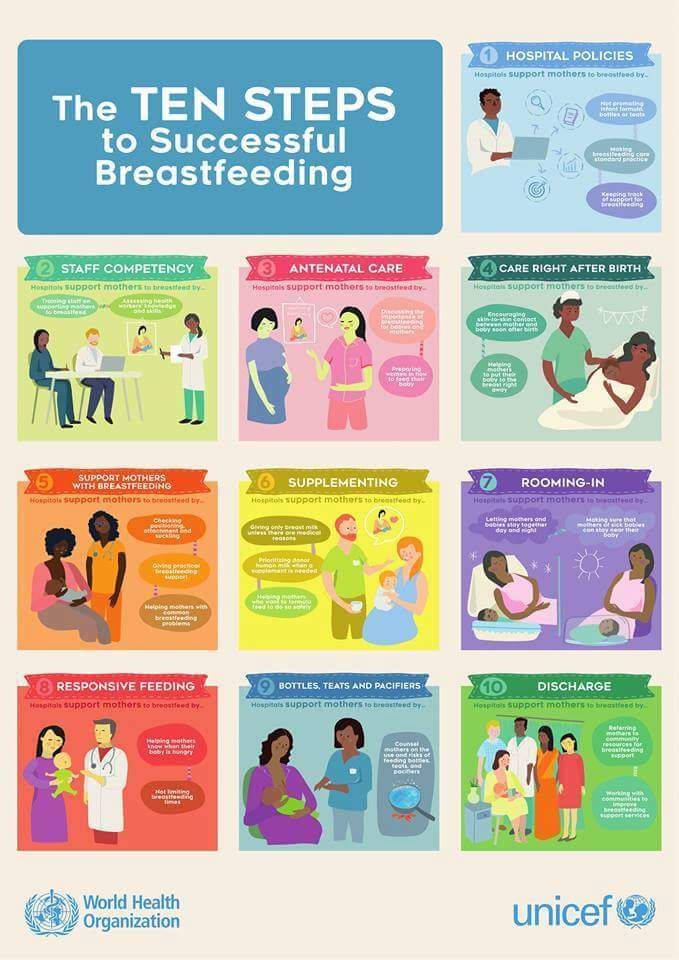
Volgograd residents are traditionally waiting for Saturday distribution
The indifference of Volgograd residents has more than once saved other people from hunger, helped out in a difficult life situation:
- It was a great giveaway! On that distribution, on March 26, we had medicines, diapers, detergents. And from food - sausages in dough, chips, sandwiches with caviar! We have a ward who is expecting twins, we brought them beds. They did a lot of things.
Volunteers have no end to people in need
According to Volgograd, often during the distribution she has to arrange educational moments. Because people begin to become impudent, demand certain things, press and insist. Volgograd residents who need help often forget that volunteers do it from the bottom of their hearts, sincerely, on a voluntary basis:
- There are educational processes both with the team and with people. Please respect our space. Because we are people, the human factor, relax and begin to become impudent, ask a lot, demand. I always tell them that we don't owe anything to anyone. Everything we do is from the heart. When there is pressure: give-give-give - it's difficult .... Please be more modest.
Please respect our space. Because we are people, the human factor, relax and begin to become impudent, ask a lot, demand. I always tell them that we don't owe anything to anyone. Everything we do is from the heart. When there is pressure: give-give-give - it's difficult .... Please be more modest.
The project should not be stopped, volunteers think
Even more Volgograd residents with children still go to Nizhny Traktornaya in the hope of getting help:
- Everyone was fed, watered - jelly, cocoa ... They also made pancakes. One of the grandmothers was presented with shoes.
Over the years, Kind Spoon has become more than just a volunteer project. Despite the greatly increased prices for products that many old people simply cannot afford, Volgograd residents are not going to curtail it.
Those who ask for help need the simplest things. But even this time there is no money
Volunteers admit that now they, together with the team and people, continue to be a family that will always support and not leave in a difficult moment:
- "Kind Spoon" is a family. The family is a responsibility, as in any family, you need to work here. Because without it, nowhere. If you want to have a healthy family, you need to communicate, listen, respect each other's opinion and space. This is what we talk about every time. The benefactors of Volgograd continue to help us feed people and clothe them.
The family is a responsibility, as in any family, you need to work here. Because without it, nowhere. If you want to have a healthy family, you need to communicate, listen, respect each other's opinion and space. This is what we talk about every time. The benefactors of Volgograd continue to help us feed people and clothe them.
Volunteers often have to rein in a hungry crowd
Elena Ivashina added that, together with the team, they urge not to judge the homeless harshly, not to look for the reason why a person ended up on the street, not everyone has the willpower of heroes, even the strongest spirit sometimes breaks the core:
- Modern reality warns that you should not deceive yourself with your well-being or success. After all, each of us is potentially homeless.
Volgograd residents heard the volunteers and helped to feed people on March 26, and not only
Earlier, we have already told how the “Good Spoon” creates both complex and simple miracles in Volgograd, feeds, clothes and gives the necessary items to disadvantaged people.